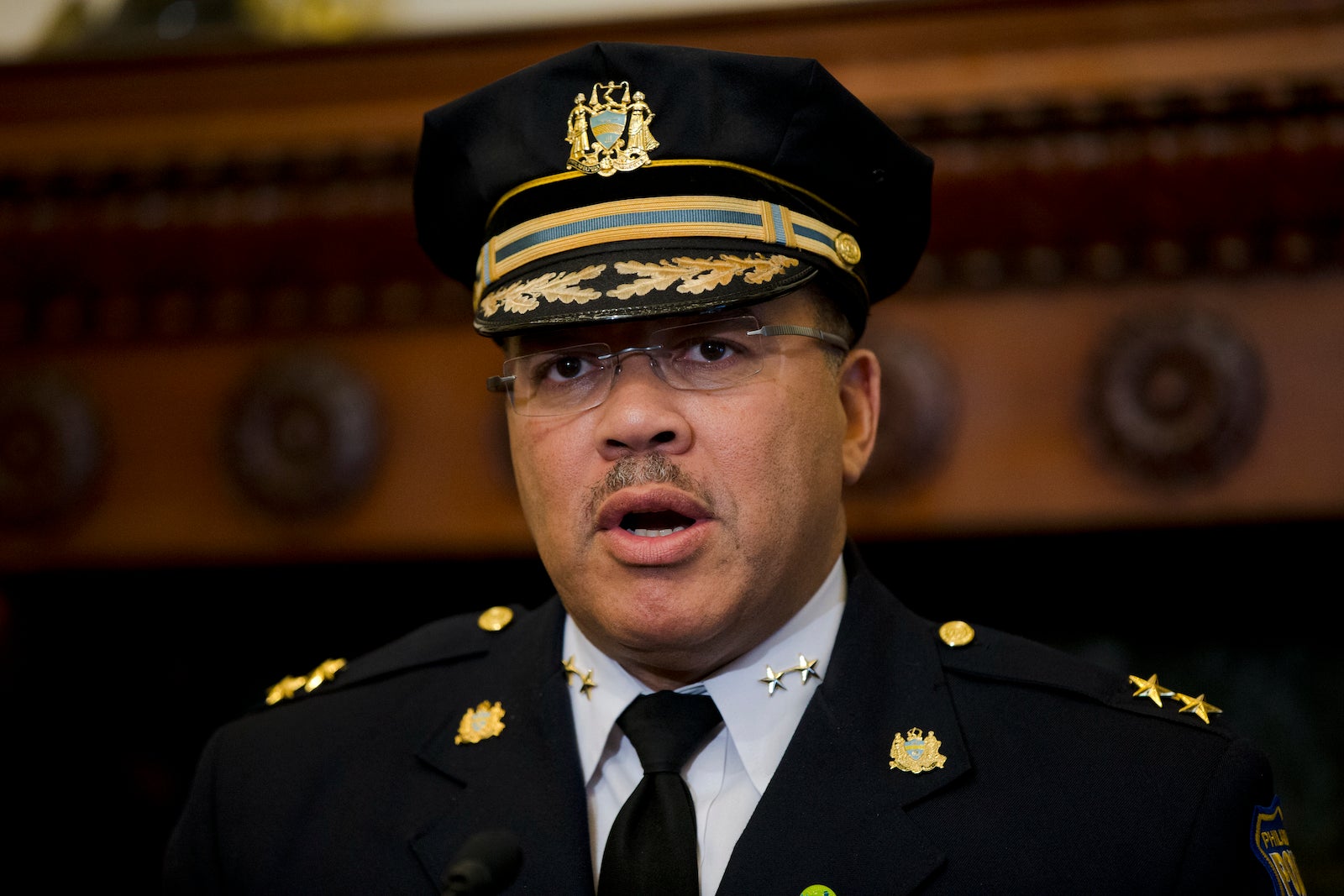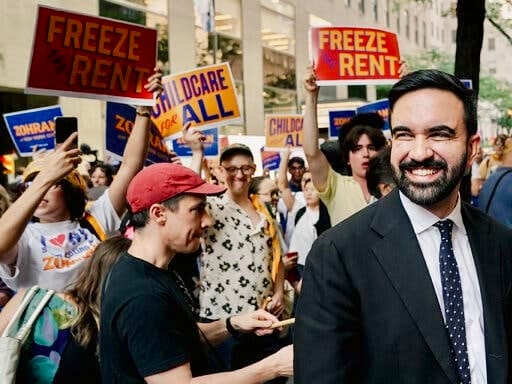Top cop to try something new — enforcement
In what is sure to be unwelcome news to District Attorney Larry “Let ‘em Loose” Krasner, the city of Philadelphia has announced an astonishing New Look — it will enforce drug laws, starting with Kensington, home to the living dead.

That might seem an impolite term to some, but when you exist from one fix to the next, when you are filthy and covered with open sores, when your past, present and future are fused into the point of a needle, when you sell your filthy body, or steal from your filthy friends, you are dead. Your heart still beats, but in terms of humanity, you are dead.
And there are some — maybe many — soft-hearted yet empty-headed people who would keep them that way, under the purple flag of compassion.
But this essay is not about safe injection sites, because no injection site is safe. It is not about harm reduction, because no addict is unharmed. This is not about enabling addicts, this is about stopping them. [I am well aware the word “Addict” is seen by some as a pejorative. I intend it to be a pejorative. Being among the living dead is a pejorative.]
In an interview with the Philadelphia Inquirer, Police Commissioner Kevin Bethel said he would shut down Kensington’s open-air drug market, perhaps the largest on the East Coast.
First, he said, community groups would put the word out that enforcement is coming. So it shouldn’t be a surprise. God forbid we should give pushers a heart attack.
In addition to drug pushers, drug users would be collared and given a choice between jail and drug treatment.
Where have I heard that before?
From D.A. Krasner? No.
From former Mayor Jim Kenney? No.
From Stu Bykofsky? Yes.
I actually had the gall to note in a previous column that using drugs is against the law, just as is selling them.
Bethel has rediscovered that.
His new policy “would be a natural progression of getting back to just enforcing the laws that haven’t been,” he said, as if discovering the wheel.
“Things that you have previously been able to do on the streets — openly using drugs, defecating on properties, threatening, stealing, those things that have historically not been addressed — will be addressed,” said Bethel.
There’s a new sheriff in town. Can we count on him?
We will find out. He was appointed by the new mayor in town, Cherelle Parker, who was the first mayor to run on a law and order policy since Frank Rizzo. She seems serious about it.
Why didn’t Kenney make law enforcement a thing? He was a woke wimp, deeply invested in the catalog of progressive grievances where responsibilities for one's misdeeds automatically transfers to societal short fallings.
Racism, classicism, poverty, income gaps have always been around. They have never before used as excuses. Gender confusion is new, as are micro-aggressions, male toxicity, white fragility, and brazen shoplifting.
But I digress.
A threshold belief of diversity, equity and inclusion is that anyone not white and male and straight has been stuck with the short end of the stick, or the smallest slice of the pie.
In some cases that is true, as is this: In some of these cases the nonwhite, nonmale, nonstraight person is just not that talented or ambitious.
Yes, I said it.
We do have a criminal class in America, and we always have. And most of the time it is composed of poor people, who are often Black, but even more often white. Almost 60% of U.S. prisoners are white.
About 1% of Americans are in jail, and that seems about right to me. I think at least 1% of Americans are not honest. When they steal or murder or rape or sell drugs and get caught, they get put in jail.
Back to Philly. When Bethel starts actually locking up the criminals, he’s sure to hear cries of “mass incarceration.” Hopefully, he will ignore that.
He’s sure to hear cries about how he’s creating a pipeline to jail.
He ought to ignore that, too.
He has promised he won’t just push the drug dealers, drug addicts, prostitutes, and thieves from Kensington into other neighborhoods. That will be a good trick, if he can avoid it.
It is far kinder to force addicts into treatment than allow them to remain zombies, which “harm reduction” policies do.
Let’s try enforcing the law because we know that not enforcing it doesn’t work.



